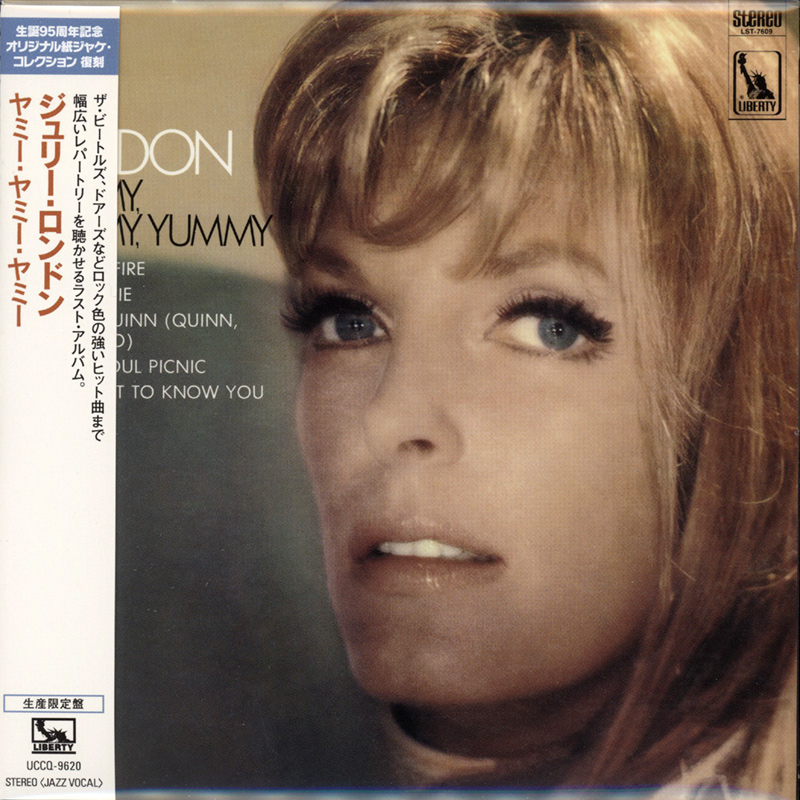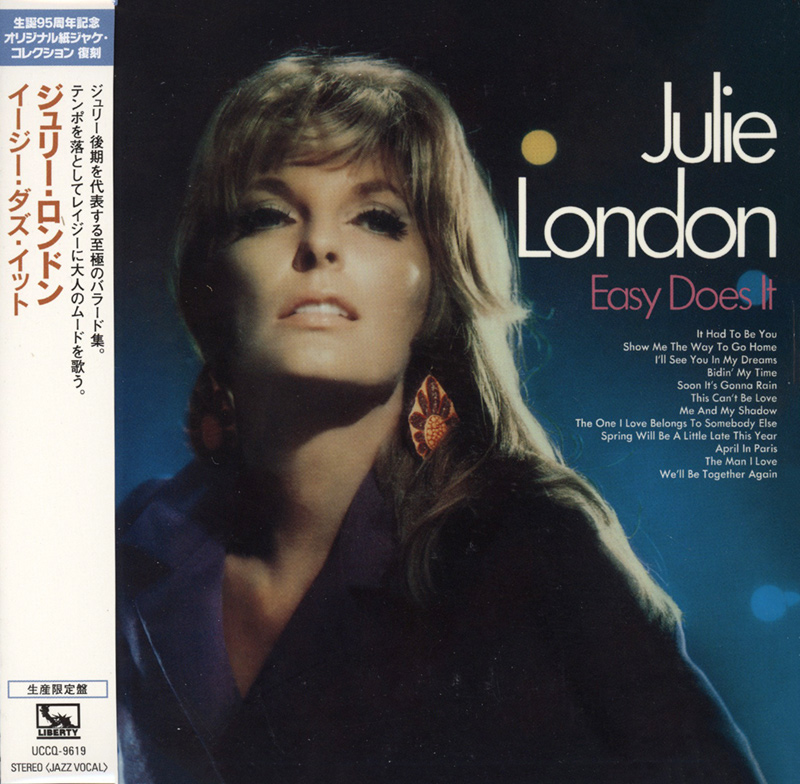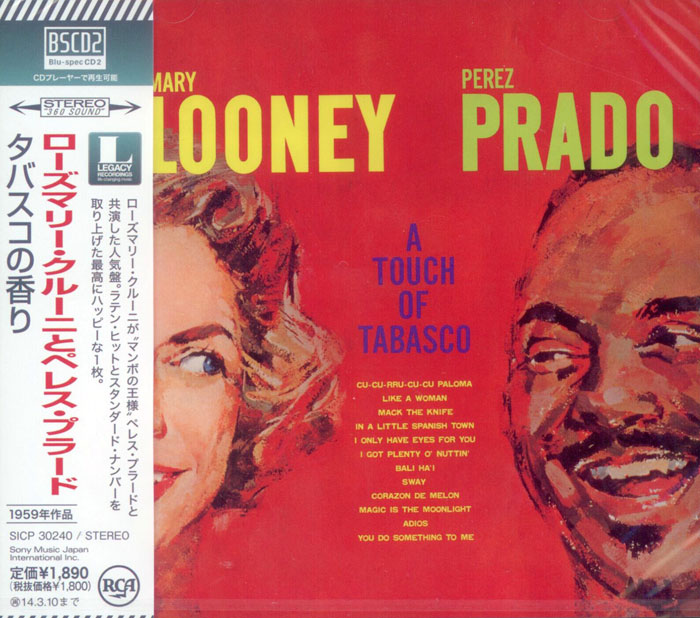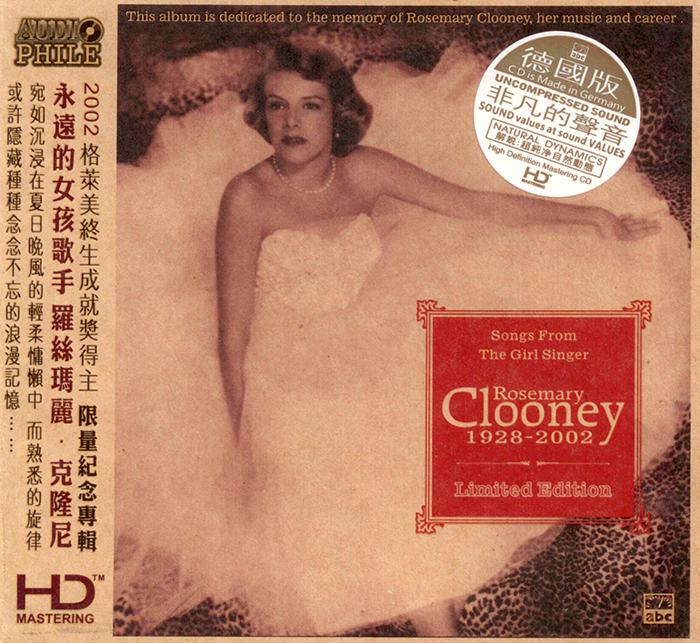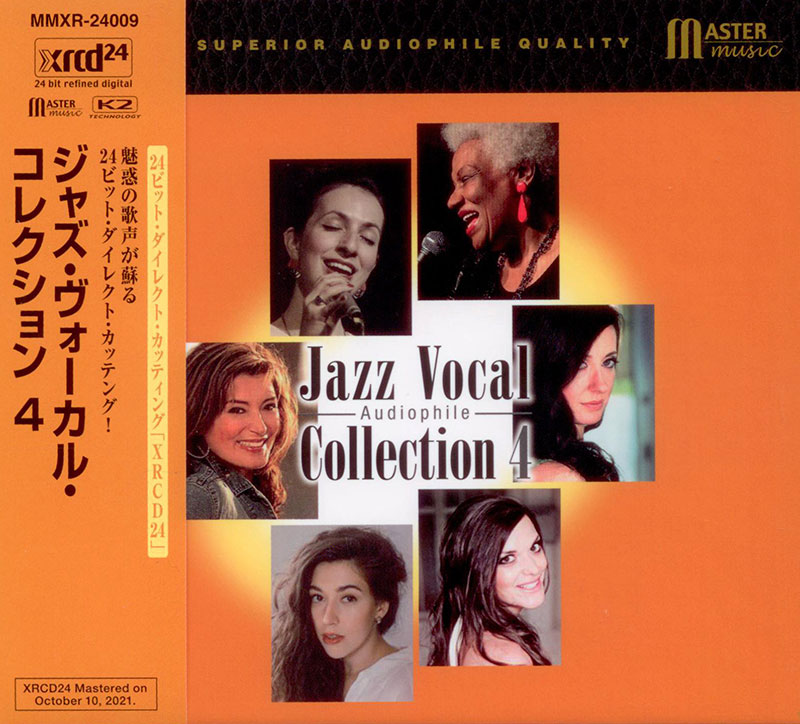Logowanie
Dziś nikt już tak genialnie nie jazzuje!
Bobby Hutcherson, Joe Sample
San Francisco
SHM-CD/SACD - NOWY FORMAT - DŻWIĘK TAK CZYSTY, JAK Z CZASU WIELKIEGO WYBUCHU!
Wayne Shorter, Freddie Hubbard, Herbie Hancock, Ron Carter, Elvin Jones
Speak no evil
UHQCD - dotknij Oryginału - MQA (Master Quality Authenticated)
Chesky! Niezmiennie perfekcyjny
Winylowy niezbędnik
ClearAudio
Double Matrix Professional - Sonic
najbardziej inteligentna i skuteczna pralka do płyt winylowych wszelkiego typu - całkowicie automatyczna
Julie London
Yummy, yummy, yummy
- Julie London - vocal
Seria: visual sound STEREO
Reedycja rzeczywiście mistrzowsko zaaranżowanych, wykonanych i nagranych (!) standardów, jakże precyzyjnie opisujących muzyczne gusty melomanów z połowy XX wieku. Piosenka to misterna kompozycja, konkurująca z najbardziej wyrafinowaną myślą inżynierską. Proporcje i relacje między planami, brzmieniem i kolorystyką każdego z instrumentów lub ich sekcji - to wiedza niemal tajemna. Albo usytuowanie głosu wykonawcy w dość intymnej relacji z podkładem. Tak, dokładnie tak - intymnej zależności. Aranżacja - to mistyczna wiedza o smaku i niepowtarzalności oraz wyrafinowaniu odmiennych stylów. Wreszcie dramaturgia każdej z kompozycji - robota wprost jubilerska. Kiedy wybrzmi ostatni akord każdej z tych płyt - pozostaje w nas nie tylko tęsknota i nostalgia. Zapisany zostaje na palecie naszej wrażliwości nowy, często wcześniej nie znany kolor nastroju. A to przecież jest... poezja! Każda z tych kompozycji to opowieść. To historia, której tak chętnie słuchamy. Dzięki tym nagraniom - wracamy do świata... bajki. I tylko na jedno pytanie nie potrafię znaleźć odpowiedzi. Dlaczego i z jakiego powodu ta koronkowa, eteryczna, granicząca z transcendencją wartość estetyczna budowana tą muzyką niemal bezpowrotnie minęła? Niemal, bo u nas, w Clubie CD - jest niezmiennie piękna i żywa. Julie London - w naszej ofercie Yummy, Yummy, Yummy Review by Lindsay Planer [-] Pop standards vocalist/actress Julie London was definitely at a transitional phase in her career when she cut Yummy, Yummy, Yummy (1969) -- the final entry in her decade-and-a-half long relationship with Liberty Records. Modern listeners will revel in the obvious kitsch factor of a middle-aged, old-school female who is crooning rock & roll. Rightly so, as the two musical universes rarely collided with a lucrative outcome. However, just below the genre-bending veneer lie interesting interpretations of concurrently well-known selections with the occasional sleeper gem thrown in. The lush and admittedly antiquated orchestration doesn't mask London's smoky and smouldering pipes, and some scores definitely work better than others. The opening cover of Laura Nyro's "Stoned Soul Picnic," the adaptation of the Beatles' "And I Love Her," and the remarkably evocative "Hushabye Mountain" from Chitty Chitty Bang Bang (1968) are each superior matches of artist with repertoire. Less successful is Harry Nilsson's "Without Him" [aka "Without Her"] as it lacks the urgency of Blood, Sweat & Tears' rendering or the pithy of Nilsson's original. The remake of Spanky & Our Gang's "Like to Get to Know You" is similarly short on soul, although it lends itself to the middle-of-the-road (MOR) feel, as does "It's Nice to Be With You." That said, the latter is infinitely more tolerable in this context than it was on the Davy Jones' warbled Monkees' single. The seeming incongruity of London's take on the Doors' "Light My Fire" isn't all that odd until she lets her hair down (so to speak) and slips into something right out of The Graduate's Mrs. Robinson. There are several instances of 'What were they thinking?,' such as the practically surreal "Mighty Quinn (Quinn, The Eskimo)" which sounds like it was the result of a Quaalude-related encounter. By the time we roll around to the title track, one can't tell if London is trying to be sexy or is simply hung over. "Sunday Morning" -- the second nod to Spanky & Our Gang -- also makes London come off as either bored or sleepy, either of which will be the effect that a majority of the album will inevitably have on 21st century ears.


































